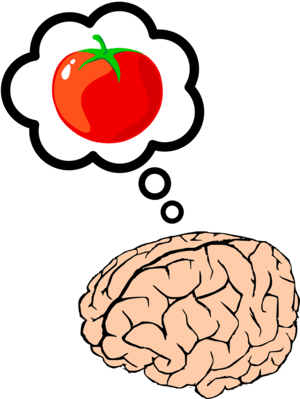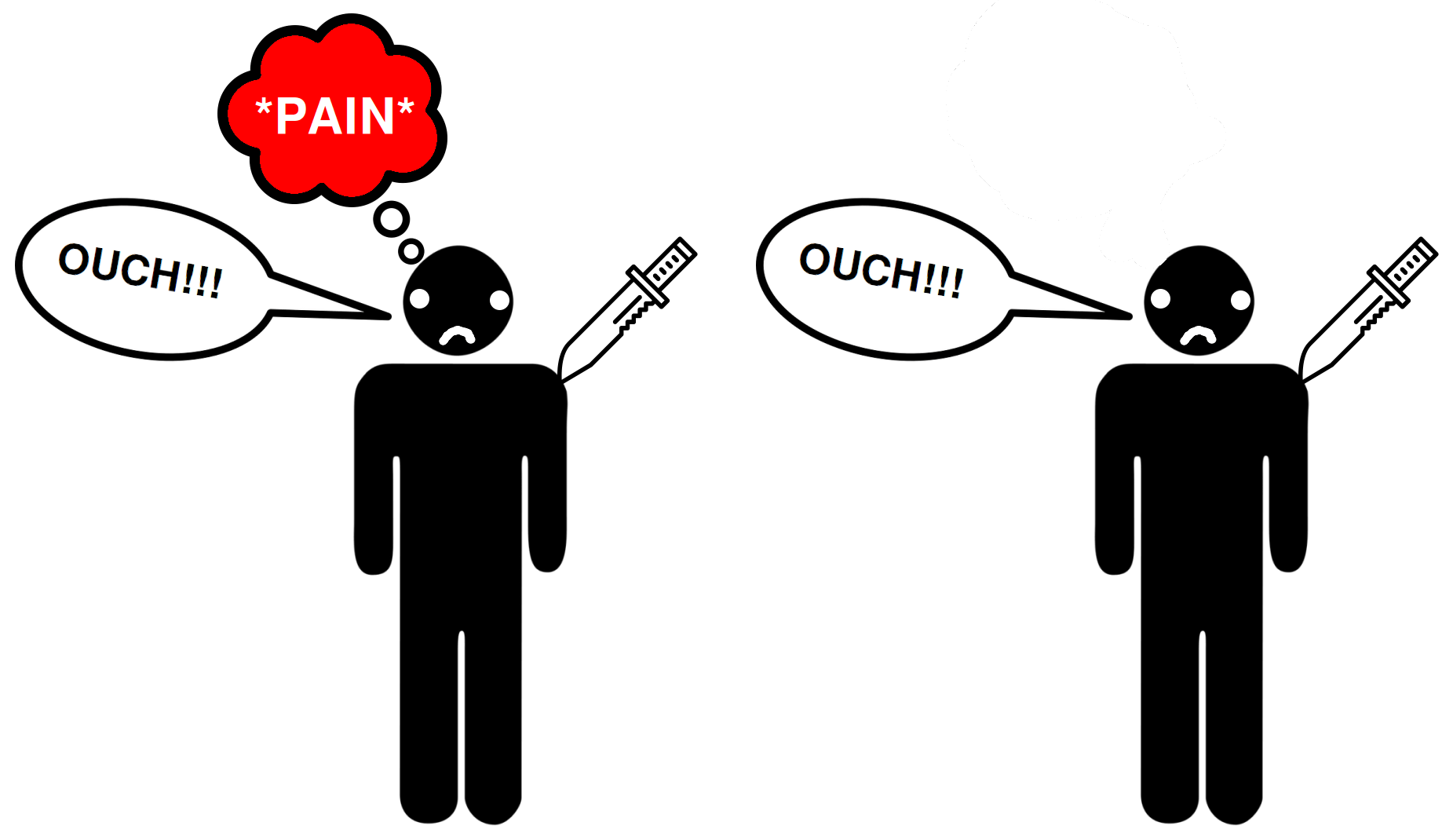Besides the existence of the universe itself, the hard problem of consciousness is probably the biggest mystery in all of science and philosophy. For thousands of years, people have grappled with this question. But even with massive advances in brain-scanning technology, neuroscience, and physics, we are seemingly no closer to an answer. So what exactly is the hard problem of consciousness? And why is it so hard to solve?!
In this post, we’ll look at what the hard problem of consciousness is, how it differs from the ‘easy’ problem, and examine some related philosophical ideas. Finally, we’ll consider the profound philosophical implications of this ancient mystery.
The easy vs. hard problem
David Chalmers, the philosopher who coined the phrase ‘hard problem of consciousness’, describes it like this:
“Why is it that when our cognitive systems engage in visual and auditory information processing, we have visual or auditory experience: the quality of deep blue, the sensation of middle C? How can we explain why there is something it is like to entertain a mental image, or to experience an emotion? It is widely agreed that experience arises from a physical basis, but we have no good explanation of why and how it so arises. Why should physical processing give rise to a rich inner life at all? It seems objectively unreasonable that it should, and yet it does. […] The really hard problem of consciousness is the problem of experience. When we think and perceive there is a whir of information processing, but there is also a subjective aspect […] even when we have explained the performance of all the cognitive and behavioral functions in the vicinity of experience – perceptual discrimination, categorization, internal access, verbal report – there may still remain a further unanswered question: Why is the performance of these functions accompanied by experience?“
– David Chalmers, Facing Up to the Problem of Consciousness
Chalmers’ quote here contrasts various ‘easy’ problems with ‘hard’ ones.
It’s not particularly spooky, for example, how “our cognitive systems engage in visual and auditory information processing” or why there is “a whir of information processing” when we think. These are easy problems because – at least in principle – we could give a mechanistic answer in physical terms. The explanation of how a brain processes visual and auditory information, say, would look something like the explanation of how the circuit boards of a computer work out 2+2=4. The explanation of how the brain processes information might be a bit more complicated than the computer, but it would ultimately be the same kind of explanation: Input → physical process → output.
What is spooky, is why “there is something it is like” to have a visual or auditory experience. Unlike the circuit boards of a computer, the mind doesn’t just process information ‘in the dark’. Instead, “there is also a subjective aspect” to the mind over and above mere information processing. In other words, there is a qualitative experience to human minds. There is something that it feels like to touch a warm fire or see a blue sky, for example, but there is no internal experience from the computer’s perspective when it calculates 2+2=4. This is the hard problem of consciousness.
| Easy questions | Hard questions |
|---|---|
| How can humans tell hot from cold temperatures? | Why does it feel like something to be next to a warm fire? |
| How are humans able exchange information through conversation? | Why does it feel like something to hear someone else’s voice? |
| Why does stubbing your toe make you say “ouch!” and rub your foot? | Why do you have an unpleasant experience of pain when you stub your toe? |
It’s no mystery why humans and animals might evolve the brain circuits we call ‘pain’, for example. This is another easy problem. There is an obvious evolutionary advantage to having brain circuits that make you get away from things that damage your body. But, as Chalmers asks, “Why is the performance of these functions accompanied by experience?”. If that brain circuit would make you move away from the source of harm anyway, what’s the point of having this subjective feeling of pain on top? A calculator produces the correct answer to a sum without any subjective experience. ChatGPT can answer your questions without having or needing any sort of inner experience. So why don’t humans work the same way? Why do living things have this extra component of experience?
The easy problem is how our minds cause our behaviour. The hard problem is why it feels like something to have a mind.
Qualia
Another way to get at the hard problem of consciousness is with the notion of qualia.
 Qualia (sometimes called phenomenal properties) refers to properties of our experience of objects, not properties of objects themselves. For example, when you look at ripe tomatoes, you experience red qualia – there is something in your mind that is red. However, there’s nothing in your physical brain that turns red – it’s not like you could cut open your physical brain and see your red qualia. So, qualia are the private and introspectively accessible properties of experience.
Qualia (sometimes called phenomenal properties) refers to properties of our experience of objects, not properties of objects themselves. For example, when you look at ripe tomatoes, you experience red qualia – there is something in your mind that is red. However, there’s nothing in your physical brain that turns red – it’s not like you could cut open your physical brain and see your red qualia. So, qualia are the private and introspectively accessible properties of experience.
When you suck a lemon, you experience sour qualia. When you stub your toe, you experience pain qualia. When you rub your hand over sandpaper, you experience qualia that feels rough.
The hard problem of consciousness can also be framed as asking the question: “Why does qualia exist?”
Philosophical zombies
The idea of a philosophical zombie also helps illustrate the hard problem of consciousness.
A philosophical zombie is a hypothetical being that is physically, functionally, and behaviourally identical to an ordinary human being in every way except for one important difference: It lacks qualia.

We can imagine a zombie version of our universe. In this parallel universe, humans, animals, plants, etc. all evolved exactly as they did in our world and behave in the same ways – animals flinch and scream when they’re harmed or injured, humans smile and laugh when a joke is made, and so on – but without qualia. Such a state of affairs seems possible.
The hard problem of consciousness can also be framed as asking the question: “Why is our universe not like this? Why are we not philosophical zombies?”
Why the hard problem of consciousness is so hard
The hard problem of consciousness consists of both a how? and why? question.
The how? question is something like: How is conscious experience generated? This is the more scientific question and, like other such questions, the answer would presumably take the form of a reductive explanation. In a similar way to how heat can be reduced to the vibrational energy in atoms and molecules, consciousness would be similarly reduced to some simpler phenomena.
But the ‘heat = vibrational energy’ explanation makes sense in a way that it’s hard to imagine an explanation of consciousness making sense. In the video below, Sam Harris explains why even the correct explanation of how consciousness would still sound completely weird:
“Any explanation we get about consciousness – let’s just say we open the back of the book of nature and we get the right answer about consciousness and it turns out that you need exactly 10,000 information processing units of a certain character, they have to be wired in a certain way, they have to be firing at a certain hertz, and just lo and behold that is what gives you consciousness and if you change any of those parameters then the lights go out – let’s say we knew that to be true, it still wouldn’t explain the emergence of consciousness in a way that is intuitively graspable. It still would seem like a miracle and that’s not the way most – or really any – satisfying scientific explanation works out.”
The ‘heat = vibrational energy’ explanation makes sense because it reduces one objective phenomena (heat) to another objective phenomena (vibrational energy/movement). You’re comparing apples with apples. But, in the case of consciousness, any scientific explanation would have to explain one kind of thing (subjective experience) with a completely different kind of thing (physical matter). It’s apples and oranges:
| Physical stuff | Conscious stuff (qualia) |
|---|---|
| Objective | Subjective |
| Public | Private |
| Quantitative and measurable | Qualitative and immeasurable |
| You can touch it | Can’t touch it |
| Has an obvious location in space | No obvious spatial location |
Examples:
|
Examples:
|
No matter how deeply you drill down into the workings of the brain, say, there would be a point where the explanation switches from talk of objective facts (e.g. neuroscientific descriptions of neurons firing, etc.) to talk of subjective experience (what it feels like). And, at that point, the scientific explanation of consciousness would just sound like the statement of a miracle. Consciousness is just so radically different from ordinary physical matter that it’s hard to comprehend how one could ever be explained in terms of the other.
And then, even if we did have the correct scientific explanation of how consciousness is generated, the why? question would still remain.
For the sake of argument, let’s say Sam Harris’ explanation above is correct. Let’s say it’s a brute fact that when you get “10,000 information processing units of a certain character” consciousness just emerges from the darkness of inanimate matter. This just happens to be the correct answer to the how? question. Even with this explanation, further questions would remain: Why do we live in a universe where this is the case? Why are the laws of nature this way? Why do we live in a conscious universe and not a zombie universe?
Philosophical implications
The hard problem of consciousness is a major challenge for physicalism; the view that we live in a purely physical universe and that everything is physical (or supervenes on physical stuff).
And physicalism is the dominant paradigm of our era. Most philosophers and scientists nowadays are physicalists. This is in part because the list of things that were once mysteries but are now understood in purely physical terms continues to expand: Gravity explains why planets and objects move as they do, evolution explains the origin of human beings, aerophysics has put man on the moon and keeps aeroplanes in the sky. It’s tempting to think such explanations will keep going until one day everything will be explained in this way.
But the hard problem of consciousness questions this assumption. As mentioned above, there is a sense that any physical explanation of consciousness – even the correct one – will be unsatisfactory. Even the most committed physicalists have to admit there’s something weird about consciousness. It just doesn’t seem to fit with the rest of the physical world.
For some philosophers, this weirdness is too much. Some take consciousness to support a dualist, rather than physicalist, conception of the universe. Others, such as George Berkeley, reject the existence of physical stuff altogether.
Whatever the actual nature of consciousness, it’s likely the truth will continue to remain a mystery for many years to come. It’s possible that the reason we live in a conscious universe is just completely unknowable. Perhaps the hard problem of consciousness will live up to its name forever – as a problem that is too hard to ever be solved.